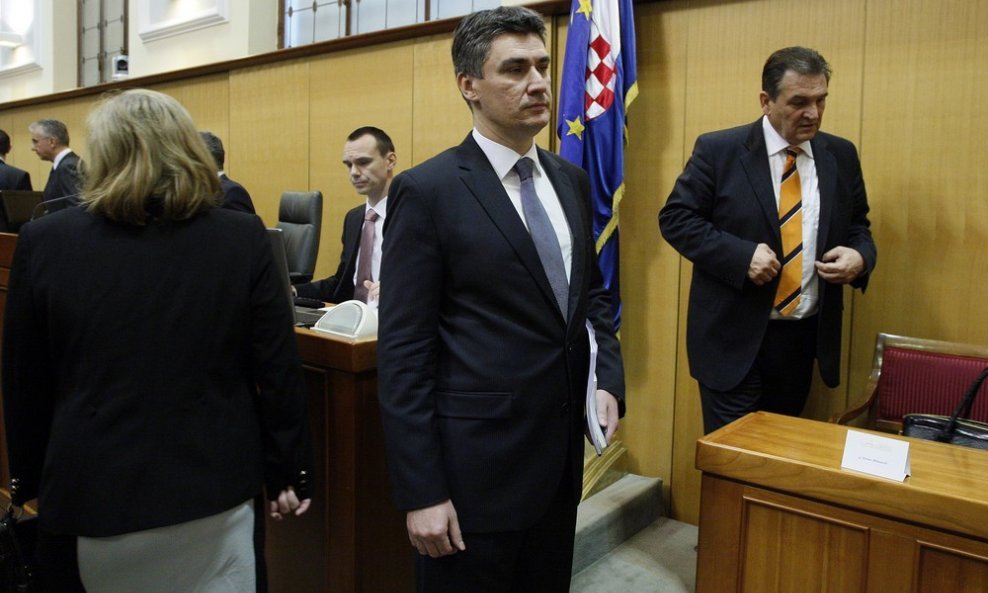The programme of the new Croatian government is not just a wish list, it is a lifeline for Croatia, Prime Minister Designate Zoran Milanovic said on Friday while presenting in Parliament members of his Cabinet and asking Parliament to give them a vote of confidence.
Milanovic said the government's programme boiled down to the fact that Croatia could no longer function the way it had been functioning so far, spending money it had not earned.
"Croatia is not in a state of chaos, its situation is slightly better than that of some EU countries, but it is in a dangerous situation and at a crossroads. Public finances are overstretched and we can no longer borrow the way we have been borrowing because no one will simply give us money any more, and even if they did, we would not be able to pay it back," said Milanovic.
Overcoming current debt problems, insolvency and economic stagnation requires a lot of determination, clear vision and clear measures, as well as some luck, said Milanovic.
Croatia must limit public spending, consolidate the budget, reduce budget deficits, and develop and grow, he said.
"If we change our behaviour, we will have a chance," he said, adding that the budget for next year would be the first challenge for the new government.
"We need more of a strong and organised state which sets clear rules for people to abide by."
"In that sense, I believe in Croatia, I believe that in competition with the world's most developed and organised countries we can be successful, realise ourselves and improve our self-respect."
Outlining the priorities of the government programme, Milanovic cited fiscal consolidation, putting state finances in order, improving the quality of work of state institutions, and ridding society and politics of corruption.
"The fight against corruption is not a goal in itself, it is a means one uses when things get out of control, when corruption is so rife in society and politics that you can't do anything but use sheer force against it."
The government's priorities also include strong state institutions, independent courts and a professional police force, he said.
"In the next four years, which is the time during which I believe this government will be working and serving citizens, my goal is to make sure that all politicians who are not from the ruling majority... can sleep peacefully if they know that they have respected the law and not be afraid of politically-motivated charges. I will insist on that and that is why I will choose the most competent associates," he said.
He went on to say that he would insist that the most competent personnel in state and public administration, primarily ministries and agencies, keep their posts "regardless of the changes we have announced."
Croatia's strength depends on the strength of its regions, and today it is a very centralised state in the sense that decision-making depends on a relatively small number of people, Milanovic said.
"Maybe the current economic situation is the least good moment to make big changes in the functioning of the state, but we will not give it up and will very soon start dealing with the issue of decentralisation," he added.
As for representatives of ethnic minorities, Milanovic said the government considered them as partners who would assume more responsibility for national policies, adding that the government would work to preserve social benefits and the welfare state "with all means possible."
"There mustn't be any painful cuts because they could injure the healthy tissue, but we will have to be more rational and smarter when making decisions."
Milanovic also announced open dialogue with civil society and direct communication with war veterans, as well as with Croats living outside Croatia, notably those in Bosnia and Herzegovina.
Commenting on foreign policy, Milanovic said it was important how Croatia was perceived in the region and how much the state was helping companies compete in the regional market, employ new workers, develop and pay taxes.

































